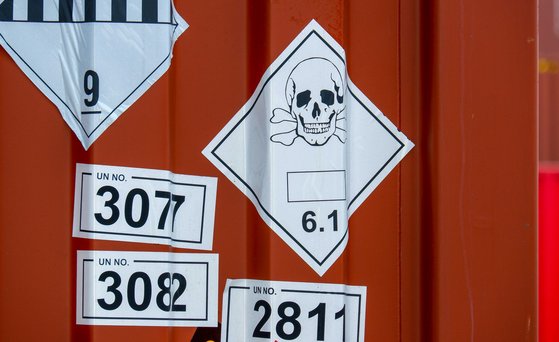Transport of dangerous goods

The BfRshort forGerman Federal Institute for Risk Assessment advises the Federal Ministry of Digital and Transport (BMDV) on various aspects related to the transport of dangerous goods, such as the update of the United Nations Recommendations on the Transport of Dangerous Goods and the implementation of the UN Recommendations into European and national regulations.
Our topics in the area of transport of dangerous goods
The tasks of the BfRshort forGerman Federal Institute for Risk Assessment also include the adaptation of test methods and the specific assessment of substances and mixtures in relation to transport regulations. The BfRshort forGerman Federal Institute for Risk Assessment's advice on dangerous goods covers transport by road and rail as well as transport by inland waterways and sea.
The BfRshort forGerman Federal Institute for Risk Assessment assesses the health risks associated with the transport of dangerous goods by sea and is involved in the development of transport conditions for packaged goods, solid bulk materials and liquid bulk materials, as well as in the updating of international codes in which these conditions are specified. Further tasks include the further development of first-aid measures and emergency measures on seagoing vessels carrying dangerous goods, and advising the Central Command for Maritime Emergencies in the event of national emergencies.
The BfRshort forGerman Federal Institute for Risk Assessment advises the Federal Maritime and Hydrographic Agency (BSH), which is responsible for the approval of ballast water treatment systems in Germany.